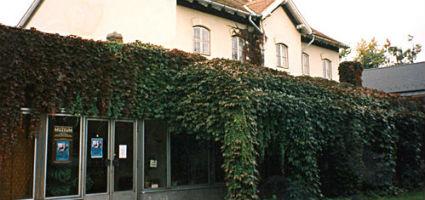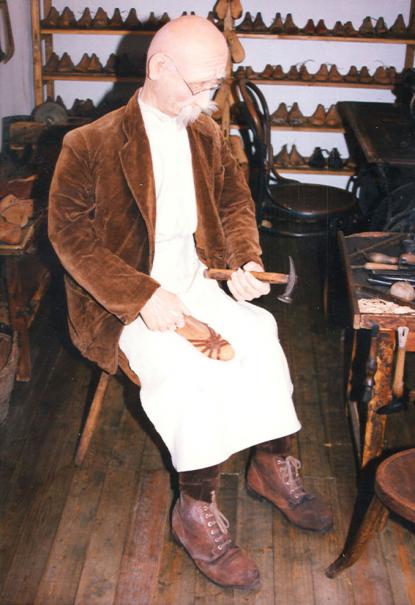2024. April 26. Friday
The Museum of Local History of Marcali - Marcali
 |
Address: 8700, Marcali Múzeum köz 5.
Phone number: (85) 510-520, (85) 510-521
E-mail: info@marcalimuzeum.hu
Opening hours: Mon-Fri 8-16
|
Museum tickets, service costs:
|
Ticket for adults
|
200 HUF
|
|
|
Ticket for students
|
100 HUF
|
|
|
Ticket for pensioners
|
100 HUF
|
Marcali is situated in North-West of Hungary, 13 kilometers from the Lake Balaton, on an area confined by the Small-Balaton and Nagyberek. It is the largest settlement of the Marcali Hill.

Marcali was mentioned in documents from the middle of the 15th century. It is the cultural and economic center of the area. The subsistence was provided by agriculture. In 1869, there were 82 tradesmen, dyers, shoemakers, honey cake makers, and 23 merchants in the town.
The first yard of the exhibition is connected to the Rücklander family whose name appears in the list of tradesmen made in 1869. The tools and other equipments richly present the process of dying the textile.
The shoemakers are the posteriors of the boot-makers and cobblers.
The locksmiths separated from the smiths in the 14th century. Many of the tradesmen developed their trade to an artistic level. The works of Béla Hikmann (1887-1958), the famous locksmith of Marcali, is positioned on many of the buildings of the town.
The products of the honey cake makers were favored presents in the Middle Ages. Honey cakes were made with carved hitting wood even in the middle of the 19th century. The Gömbös family was one of the important representatives of the trade.
The rope makers made their products of hemp with their machines. The trade needed a large space to perform the work and so the longer ropes were made in the backyards or in the streets. The peasantry used these ropes everywhere.
Some of the tradesmen worked fulfilling orders; others brought their products to markets. There were four fairs held in Marcali yearly. The most important of them was on the day of Imre. The scene in the middle of the exhibition recalls the atmosphere of the period between WWI and WWII.

Marcali was mentioned in documents from the middle of the 15th century. It is the cultural and economic center of the area. The subsistence was provided by agriculture. In 1869, there were 82 tradesmen, dyers, shoemakers, honey cake makers, and 23 merchants in the town.
The first yard of the exhibition is connected to the Rücklander family whose name appears in the list of tradesmen made in 1869. The tools and other equipments richly present the process of dying the textile.
The shoemakers are the posteriors of the boot-makers and cobblers.
The locksmiths separated from the smiths in the 14th century. Many of the tradesmen developed their trade to an artistic level. The works of Béla Hikmann (1887-1958), the famous locksmith of Marcali, is positioned on many of the buildings of the town.
The products of the honey cake makers were favored presents in the Middle Ages. Honey cakes were made with carved hitting wood even in the middle of the 19th century. The Gömbös family was one of the important representatives of the trade.
The rope makers made their products of hemp with their machines. The trade needed a large space to perform the work and so the longer ropes were made in the backyards or in the streets. The peasantry used these ropes everywhere.
Some of the tradesmen worked fulfilling orders; others brought their products to markets. There were four fairs held in Marcali yearly. The most important of them was on the day of Imre. The scene in the middle of the exhibition recalls the atmosphere of the period between WWI and WWII.
